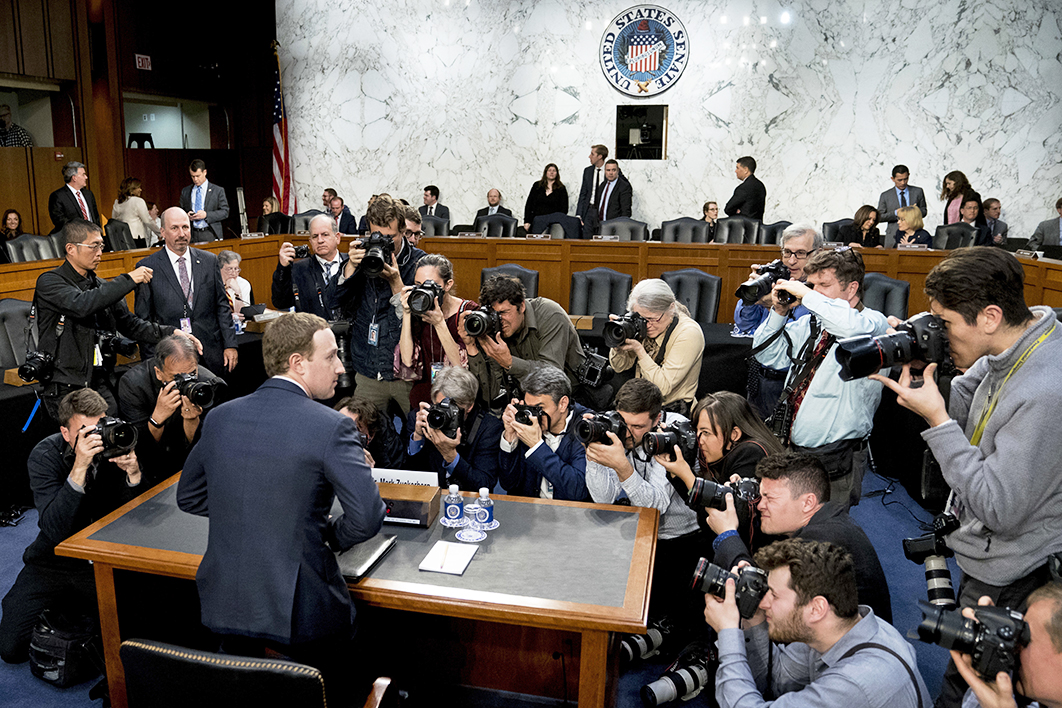Facebook’s announcement that it is launching a cryptocurrency called Libra raises two questions. Will Libra compete with the most famous cryptocurrency, Bitcoin? And what is a cryptocurrency anyway? For those without the patience to read further, the answers are “No” and “A cryptocurrency is any new financial instrument you choose to call by that name.”
To start with, let’s look at Bitcoin. Here, the central idea is that coins are generated (or “mined”) by performing an extraordinarily difficult but entirely pointless calculation that can be verified publicly. This “proof of work” is recorded in a database called a distributed ledger, using a technique referred to as blockchain. Additions to the blockchain are validated through a consensus among all the nodes in the network of users.
This model has a number of perceived advantages and one gigantic disadvantage. The main advantage is that the ledger requires no central authority and is effectively immutable, thereby providing a currency independent of any central bank or issuing authority. The big disadvantage is that the technique wastes vast amounts of energy, roughly equal to the total value of bitcoins created. At its present price and creation rate, Bitcoin is wasting energy equal to the total consumption of a country like New Zealand.
Bitcoin was designed to be used in place of ordinary currencies for purchases of goods and services. This hasn’t happened, at least for ordinary transactions. Merchant adoption has been negligible and is, if anything, declining. For example, Brisbane Airport claimed in January last year that it would be the world’s first Bitcoin airport, but a year and a half later only three stores in its international terminal are accepting the coins, and only a handful of transactions are processed each month.
Bitcoin’s only significant use in transactions is among users who wish to conceal from the authorities the fact that they are making drug deals or evading exchange controls in countries like Venezuela. Even there, success is mixed, with a number of “dark web” drug markets recently closed down.
The majority of Bitcoin activity is purely speculative. It’s true that the supply is finite, which is good for speculators, but that’s to ignore the ultimately more important fact that the coins are not backed by anything. By contrast, ordinary (or “fiat”) currencies have value because issuing governments accept them in payment of taxes and other obligations.
Facebook’s Libra is the direct opposite of Bitcoin in two critical respects. First, unlike the decentralised Bitcoin, Libra is centralised. Coins will be issued only by Facebook and its trusted partners. This means that there is no need to perform the energy-guzzling “mining” process. On the other hand, it is entirely inconsistent with the idea of cryptocurrencies being outside the control of any one organisation.
Second, whereas Bitcoin is backed only by the willingness of cryptocurrency users to buy it, Libra will be a “stablecoin” backed by a basket of currencies, including the US dollar. This raises the obvious question: why not just pay in your own currency — or, if that is problematic, in US dollars?
Facebook’s answer to this question is that Libra will be aimed, at least initially, at users in poor countries who have access to Facebook but not to banks or other financial institutions. Given the proliferation of smartphones in poor countries and the patchy development of financial networks, the potential market is large.
But so, on the other hand, are the obstacles. Libra will be a financial instrument that allows users in poor countries to trade within a basket of rich country currencies. That’s likely to create plenty of regulatory obstacles at both ends. After all, at some stage Libra funds will need to re-enter national economies via a route that is subject to national regulation.
A few years ago, when cryptocurrencies seemed unstoppable and Silicon Valley had far more political support than Wall Street, these obstacles might have been swept aside. Today, however, a new venture combining one of the least-trusted tech companies with the long-hated credit card companies and gig economy ventures like Uber seems designed to generate hostility across the political spectrum.
Coming back to our second question: if financial instruments as different as Bitcoin and Libra can be called cryptocurrencies, does the word have any meaning at all? Bitcoin advocates would answer that stablecoins like Libra aren’t really cryptocurrencies at all. On the other hand, the fact that Bitcoin is barely used as a medium of exchange raises the question of whether it can be called a currency of any kind.
Ultimately, the crucial part of the name is “crypto.” What Bitcoin and Libra have in common is a desire to avoid the constraints of government regulation of financial markets by burying their operations in layers of technological mystery. These aspirations, brought together in the term “fintech,” reflect the market libertarianism that dominated both the technology and finance worlds in the heady days of the 1990s, and persisted even after the global financial crisis of 2008. It remains to be seen whether such aspirations will flourish in the current, much less favourable environment. •




